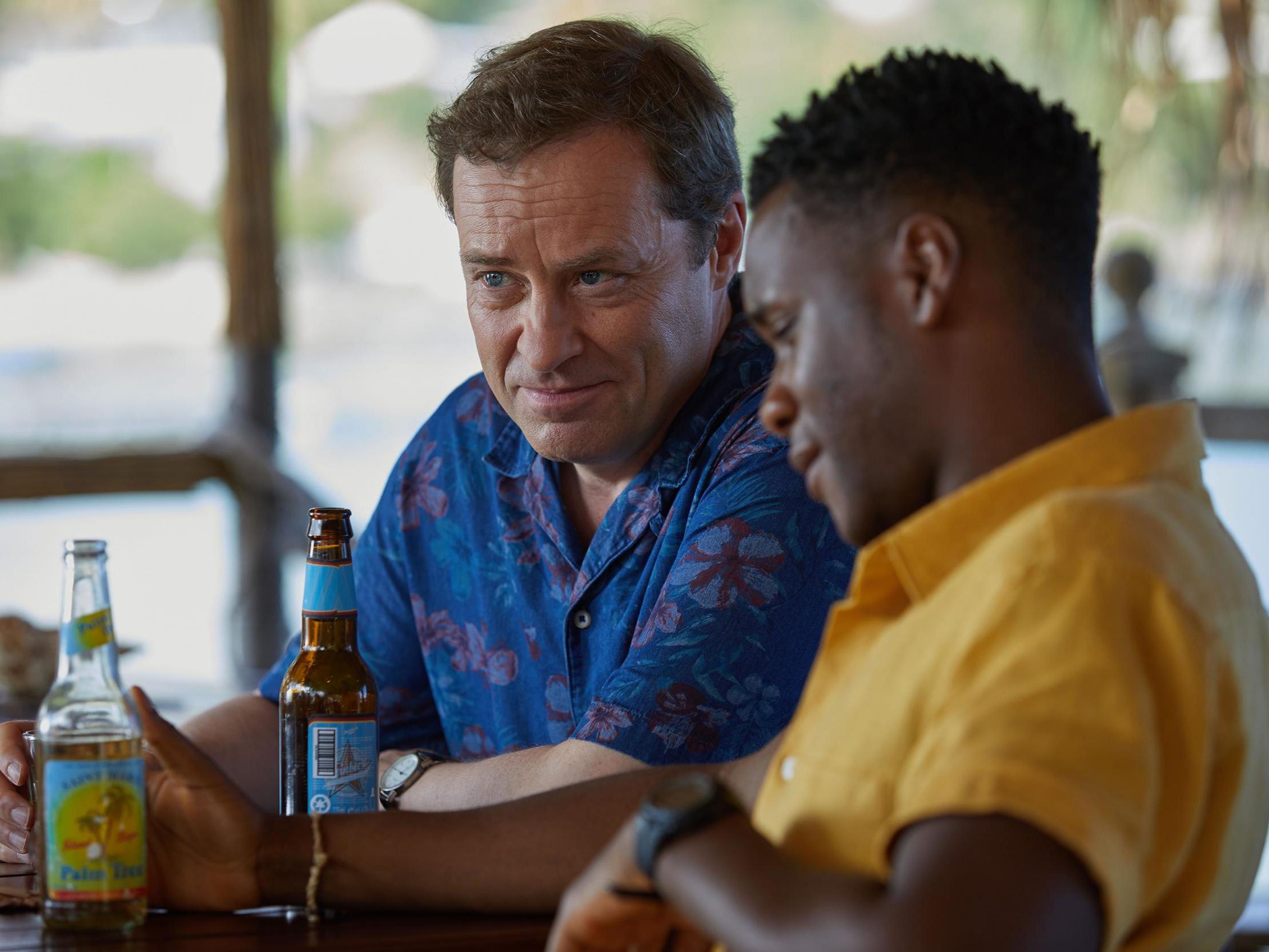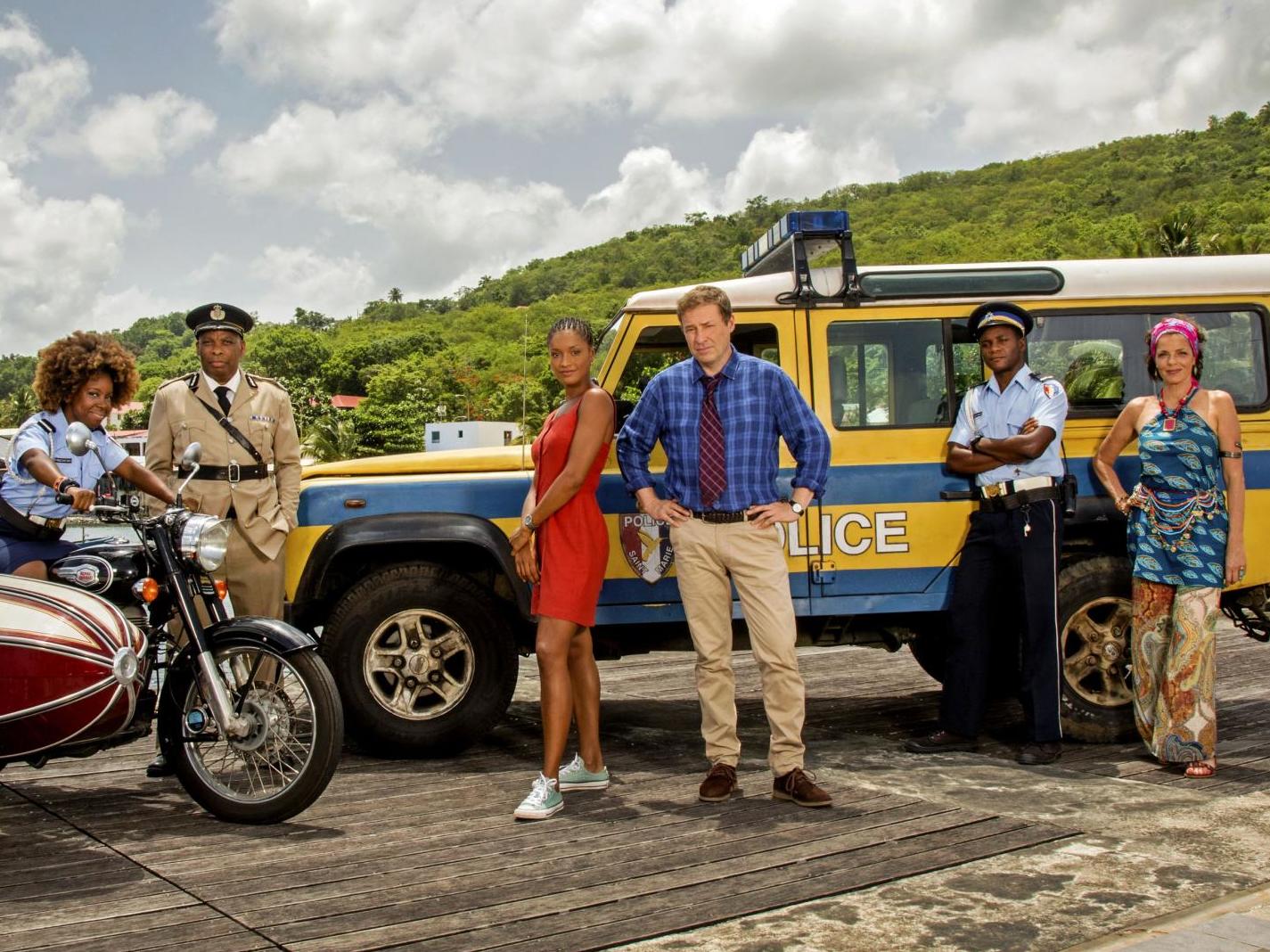Your support helps us to tell the story
From reproductive rights to climate change to Big Tech, The Independent is on the ground when the story is developing. Whether it's investigating the financials of Elon Musk's pro-Trump PAC or producing our latest documentary, 'The A Word', which shines a light on the American women fighting for reproductive rights, we know how important it is to parse out the facts from the messaging.
At such a critical moment in US history, we need reporters on the ground. Your donation allows us to keep sending journalists to speak to both sides of the story.
The Independent is trusted by Americans across the entire political spectrum. And unlike many other quality news outlets, we choose not to lock Americans out of our reporting and analysis with paywalls. We believe quality journalism should be available to everyone, paid for by those who can afford it.
Your support makes all the difference.Approximately 30 minutes into the first episode of the BBC’s returning Caribbean whodunit Death in Paradise, a warm cosy feeling comes surging in. As is traditional on Robert Thorogood’s sun-kissed thriller, a brutal and confounding murder has been committed. Several suspects are under scrutiny, each with their own knotty motives. Things are verging on complicated.
But we’re reaching the end of a long week in January. Our attention spans aren’t what they used to be. Death in Paradise is perfectly aware of that. So here’s Detective Inspector Jack Mooney (Ardal O’Hanlon) clomping to the rescue of the fading viewer.
He writes the names of all the potential guilty parties on a whiteboard, along with their possible reasons for doing the deed. He even draws arrows, so that we know precisely how the possible perpetrators are interconnected. You settle a little deeper into your chair, knowing you are in safe hands.
There is, it is fair to say, a range of opinions regarding Death in Paradise, which begins its ninth series tonight. It regularly draws audiences in excess of 8 million, placing it comfortably in the top 10 most-watched shows on terrestrial TV during its time on air.
Yet critics are generally flabbergasted by its popularity – when they deign to acknowledge its existence. Among those who make it their business to know the difference between good and bad television, there is widespread bafflement that an easy-to-follow thriller set on a gorgeous Caribbean island should find favour with the public.
The puzzle of Death in Paradise’s appeal is, in fact, easily cracked. For all its impressive body-count, Thorogood’s romp harks back to breezier and more innocent times. Each week a fresh crime is committed on Saint Marie, a fictional setting loosely based on the French-governed archipelago of Guadeloupe (where Death in Paradise is filmed).
Enter Detective Inspector Mooney, that rare modern TV detective whose personal life is not a distracting mess. As with his two predecessors on the show – played in chronological order by Ben Miller and Kris Marshall – he disentangles the mystery, the killer is unmasked. All before the news and bedtime.
To say I’m an obsessive Death in Paradise fan would be an exaggeration. I did not spend December counting down to the latest series. Nor did the revelation that Ardal O’Hanlon is moving on after three years – apparently the relentlessly sunny weather is too much – send me to the internet to vent my outrage. The news that he is to be replaced by Royal Family star Ralf Little wasn’t a topic of conversation with my friends in the pub over Christmas. There is no Death in Paradise expanded universe to become immersed in. Once done, each episode immediately erases itself from your memory.

But if it’s on and I’m not doing anything else – such as meaningfully engaging my brain – then, sure, I’ll watch. Such, I suspect, is the general feeling among its regular viewers. They, like me, may enjoy being reminded of such uncomplicated treats of yesteryear as Bergerac, Lovejoy or Murder, She Wrote. The world is angry and frightening, full of people shouting at one another on Twitter. Death in Paradise presents an irresistible weekly escape hatch.

Watch Apple TV+ free for 7 days
New subscribers only. £8.99/mo. after free trial. Plan auto-renews until cancelled

Watch Apple TV+ free for 7 days
New subscribers only. £8.99/mo. after free trial. Plan auto-renews until cancelled
It has a charming backstory too. In the mid-Noughties, Thorogood was nearing 40 – a struggling writer beginning to suspect he was wasting his life. His wife, a broadcast journalist with Classic FM, was supporting the family. His days were spent knocking around in his pyjamas writing scripts he knew would never amount to anything.
Then, one morning in 2007, he happened to switch the radio on and hear a news report about the suspicious death of Pakistan cricket coach Bob Woolmer at the Cricket World Cup in Jamaica. The detail that intrigued him was that local police had brought in detectives from Scotland Yard to help with the murder investigation (it was never proved conclusively whether or not Woolmer was the victim of a crime). In his bedroom office, where he was wrapped in his dressing gown and feeling slightly sorry for himself, a light-bulb went off.
“I imagined an uptight and by-the-book London copper trying to solve a murder in the sweltering heat of the Tropics. There was a series in this. I was sure of it,” Thorogood later told the BBC.
So he had the germ of something. But how to sell it? He started knocking on production company doors. They saw the potential – but also balked at the costs such an undertaking would necessitate.

“They liked the idea enough, but it would be expensive to make, it would require filming in the Caribbean for at least five months,” he later remembered. “And there was one thing they believed above all else: it was unlikely the BBC would allow someone without a writing credit to their name to create and write a prime-time TV series.”
Salvation came in the unlikely form of a script-writing competition organised by Tony Jordan, former lead writer of EastEnders, through his new production company Red Planet Pictures. Jordan, who was also the co-creator of Life On Mars, pledged to give his full backing to any screenplays that caught his attention. Which Thorogood’s outline for Death in Paradise did.
With Jordan vouching for the project, the BBC and France’s national broadcaster France Televisions agreed to co-fund the production, Thorogood had his green light. A few months later, he was in the Caribbean scouting locations. The series debuted on 25 October 2011, drawing an impressive 5.89 million viewers. That figure had jumped to more than 7 million when it returned in January 2013 (from the outset it was decided to maximise the appeal of the sun-slathered backdrop by airing in the bleak midwinter).
For all its success, Death in Paradise has found it comically difficult to hold onto its stars. First to play the archetypal copper out of water was Ben Miller. But he left in 2014 to be with his partner back in London. He had spent 12 of the previous 18 months shooting in Guadeloupe. Enough was enough. So his character, DI Richard Poole, was killed off and Kris Marshall’s detective Humphrey Goodman flown out to investigate. But Marshall, likewise, found the strain of being away from loved ones too much and, with his family starting to grow up, packed in the show in 2017.
Next came Father Ted star and successful stand-up Ardal O’Hanlon. He transplanted the agreeable befuddlement of Ted’s Father Dougal McGuire to the Caribbean. The result was a sort of Celtic Columbo (for those sufficiently ancient to remember Peter Falk’s wily homicide detective).
But the boundless sunshine and beauty of Guadeloupe apparently weren’t to the actor’s liking. He has stated it was “time to move on and explore other opportunities – preferably nearer the Arctic Circle”. He is to be replaced by former Royal Family star Ralf Little at some point in the present season. It’s like the James Bond conveyor-belt sped up by a factor of 10.
Nor is it just the leads that keep flying the tropical coop. Sara Martins, who played DI Poole’s original investigating partner DS Camille Bordey, left a year after Miller. She said she wanted to try different things. “The only way to grow in life is to take risks, even if it means losing something you love, or leaving a place that’s comfortable. You should always go forward and take new challenges.” A similar restlessness appears to have taken hold of Danny John-Jules, who walked away from the part of officer Dwayne Myers after seven years. Shortly afterwards, he turned up on Strictly Come Dancing.
Yet far from a curse, Death in Paradise’s inability to hold on to major cast members has proved an unlikely blessing. The BBC received definitive proof early on that the series is bigger than any one actor. In theory, this is a hit that could rumble on in perpetuity (at least one further series has already been confirmed). For as long as there is an appetite for elaborate murders committed amid golden sands and aching sunshine, the broadcaster can continue churning out Death in Paradise. Thorogood’s mid-life crisis pipe-dream has birthed that rarest of things: the unkillable franchise.
“There’s something wonderful about that sort of Poirot, Agatha Christie-style investigation: cross-questioning all the witnesses and checking their stories, looking for means, motive and opportunity,” was how original star Miller defined the allure of Death in Paradise when initially cast. “It’s got that wonderful classic feel to it, at the same time as this incredibly unusual tropical island setting and a very remote tropical island at that, remote in the geographical sense. It feels like a different time and place.”
‘Death in Paradise’ returns to BBC One tonight at 9pm

Join our commenting forum
Join thought-provoking conversations, follow other Independent readers and see their replies
Comments